US former Ambassador leaves diplomatic service for opposing Trump’s approach to Vietnamese immigration
VNF - President Donald Trump’s approach on Vietnamese immigration is one of the reasons I left the diplomatic service, US former Ambassador Ted Osius revealed recently.
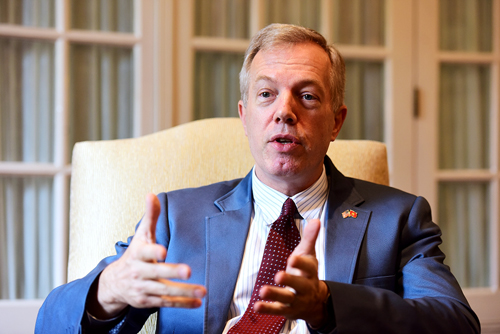
US former Ambassador Ted Osius
On November 8, 2016, Republican Donald Trump stunned the world by defeating his Democratic opponent Hilary Clinton in the race for the White House.
According to Oisus, he is proud to serve his country as a diplomat for nearly 30 years. Despite the idea of leaving his career when the United States has a new administration, he still feels he has a great responsibility with the staff at the US Embassy in Vietnam.
“I was sworn to do my best when taking office in 2014 and I believe in the long-term relationship between Vietnam and the US. So I would like to take on the Ambassador position as long as possible, hoping to help the new US administration avoid big mistakes,’’ said Osius.
During the following months, the United States witnessed a series of changes. By the end of January 2017, the new administration announced the withdrawal of the Trans-Pacific Partnership (TPP), an entry ban on people in seven Islamic countries and on early June 2017; and on June 2017, the withdrawal from the Paris Climate.
Then the pressure was increasingly weighing on the Ambassador when he was asked by Washington to urge the Vietnamese government to receive more than 8,000 deportees. Most of these people immigrated to the United States after the war in 1975. Now they have a stable life in the US. Osius concerned about many consequences of this policy, as some of those who are deported have not overcome the wound of the war. The former Ambassador said the new policy would affect other US government’s targets for Vietnam, such as reducing trade deficits, strengthening military cooperation and responding to threats to peace in the area.
"I objected to the expulsion of the Vietnamese immigration. Despite being asked to remain silent, I thought that there was a boundary that I could not pass if I wanted to keep my integrity. I decided I should serve for the country from outside the government," Osius said.
Since March 2017, ICE has launched a campaign to deport Vietnamese refugees who have been convicted and sentenced in the United States. ICE last year arrested 71 Vietnamese immigrants and 35 others by 2016. The US Census Bureau estimates that there are about 1.3 million Vietnamese immigrants living in the United States. Of these, up to 10,000 Vietnamese immigrants received deportation orders, many of them due to the "green card" loss for being convicted. Those who left Vietnam before July 12, 1995, when the two countries resumed diplomatic relations, also belong to the deportee group.
The moment Osius determined to leave the government is on September 2017. He found himself unfit to work for the State Department anymore. At the same time, he got an offer to work at Fulbright University Vietnam. Osius received great support from his life partner Clayton Bond as the latter also resigned his position in the US State Department.
In Jan 2017, before Donald Trump was sworn, ambassadors who were appointed under President Obama Administration were requested to leave office before Jan 20. According to the New York Times, over the past few decades, 30% of US ambassadors are “politically appointed” while 70% are professional diplomats. Ambassador Osius said that as a professional diplomat, he was not asked by the new government to resign and was scheduled to end his term in early November 2017.
Before deciding to leave the US State Department, Osius said he had been proposed by the Trump administration to be a Diplomat-in-Residence, who could work in 16 areas in the US, supporting students and diplomats. Osius is also considered to be appointed as ambassador in another country.
"My diplomatic career has given me the privilege to serve more than myself: America, so the decision to resign has made me feel mixed up," Osius said.
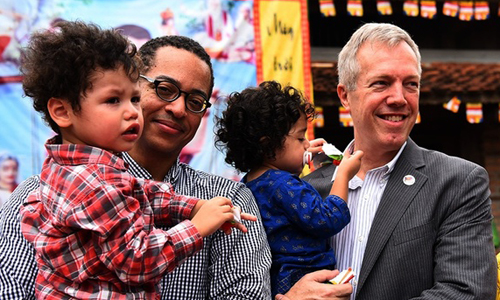
Ted Osius and his family in an event in Hanoi last year
In January 2018, Osius and his family moved to Ho Chi Minh City, officially holding the Vice President of the Fulbright University of Vietnam (FUV). The former Ambassador believes that educational cooperation between Vietnam and the US brings one of the strongest links between the two countries. At FUV, students will learn how to solve problem in creative ways, tackling the challenges of Vietnam and the world. The University appreciates innovation and research freedom.
"Although I am very sad to leave the US State Department, I believe I can make great contributions to the US-Vietnam relationship by creating a new university based on American academic principles. FUV will help promote Vietnam's prosperity and connect the two countries through generations," he said./.
Ha Thuong
Recommended
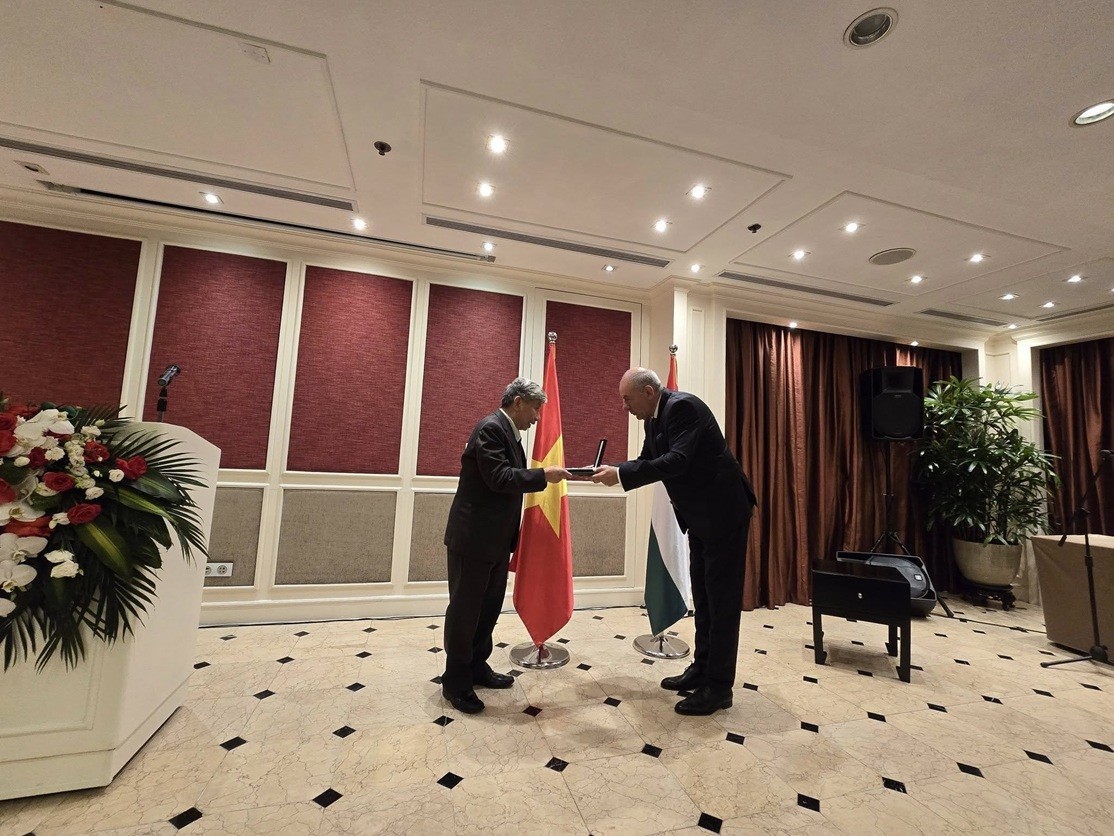 Friendship
Friendship
Dr. Vu Hoai Chuong Receives Hungary's Knight Cross Order
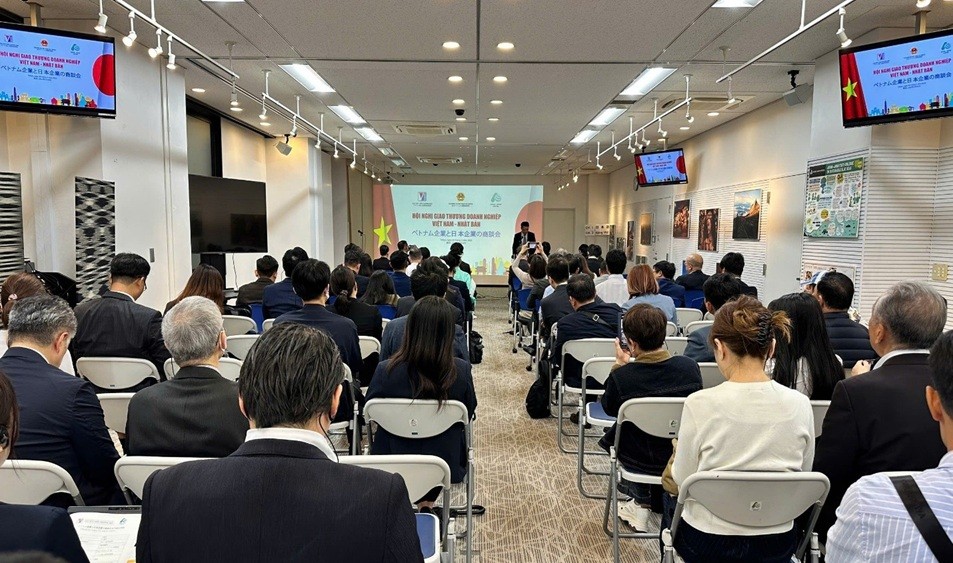 Friendship
Friendship
Promoting Vietnam - Japan Economic Cooperation
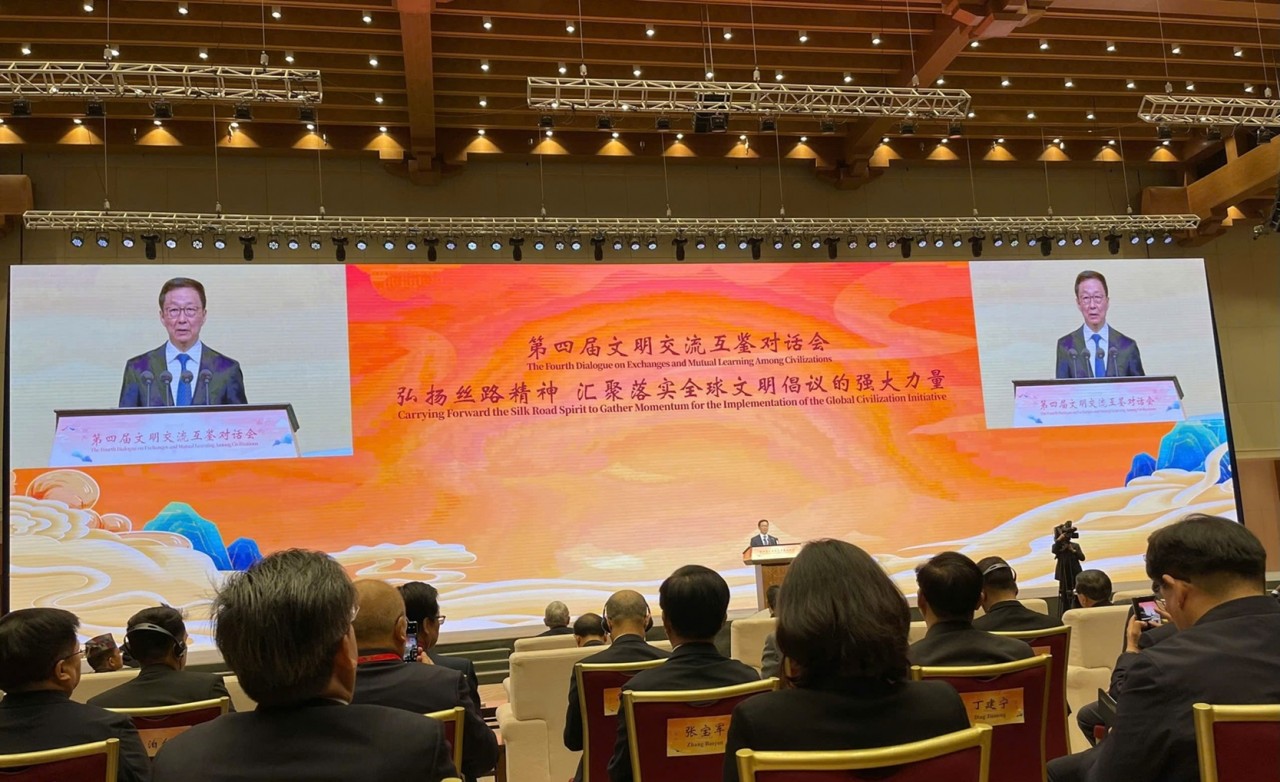 Friendship
Friendship
VUFO Attends Fourth Dialogue on Exchange and Mutual Learning among Civilizations
 Friendship
Friendship
COPI (US) Provides Free Medical Check-Ups for Nearly 1,000 People in Quang Nam
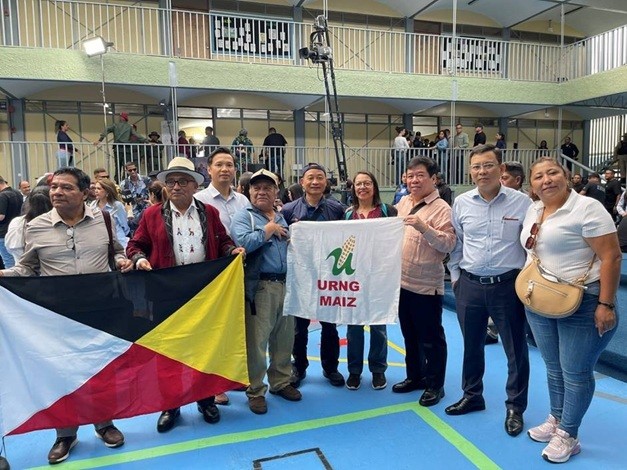 Focus
Focus
Strengthen Solidarity and Friendship Between Vietnam and Venezuela
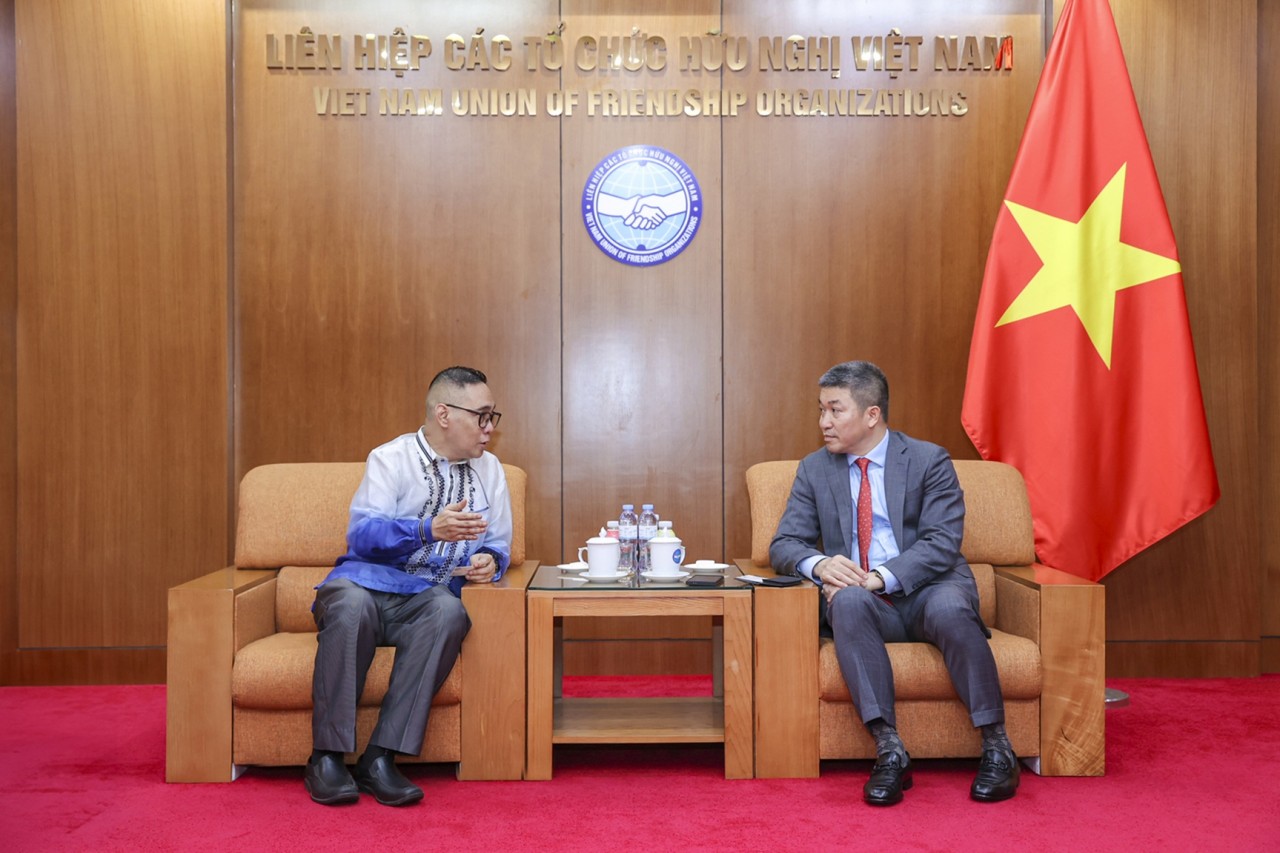 Friendship
Friendship
VUFO Supports Initiatives to Enhance People-to-people Exchanges between Vietnam and the Philippines
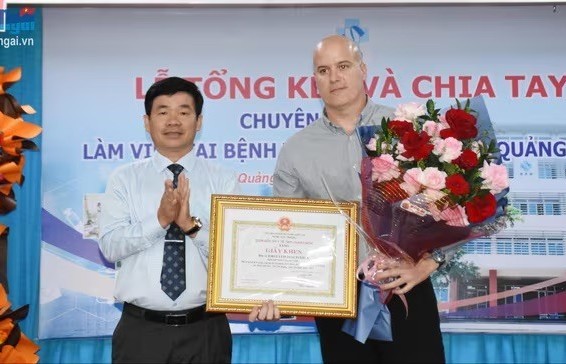 Friendship
Friendship
Quang Ngai Recognizes Cuban Health Experts' Contributions to Mother and Child Care
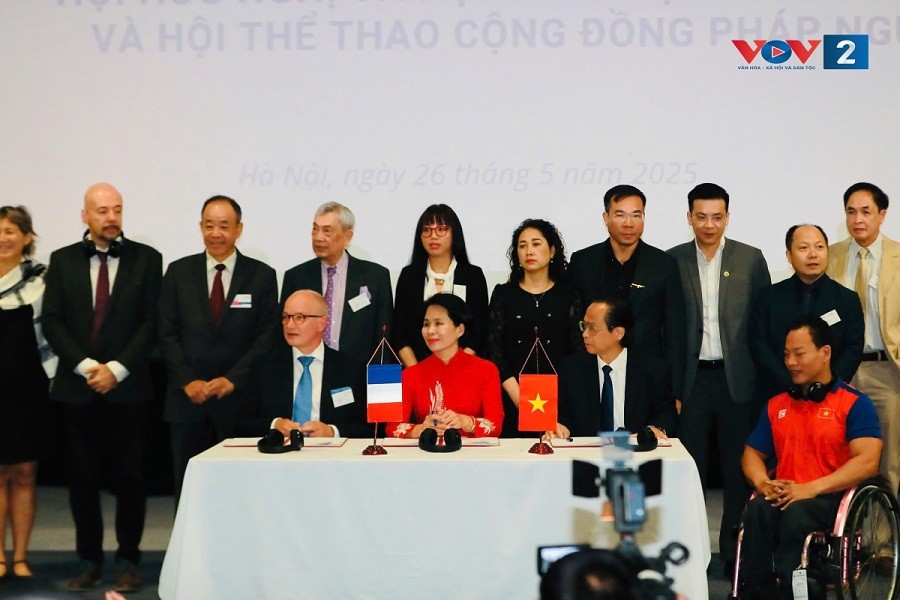 Friendship
Friendship
